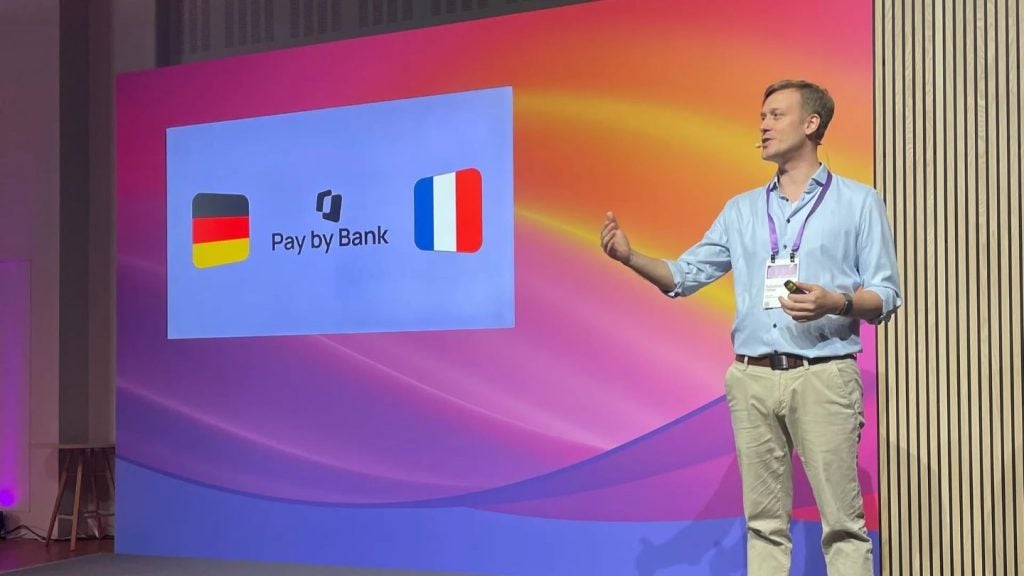The ever-growing Egyptian financial market is part of a successful Middle East economy, but how do payments play into its success?
The Egyptian economy is the second-largest in the Middle East after Saudi Arabia. The economy depends largely on agriculture, tourism and cash remittances from Egyptians working abroad, mainly in Saudi Arabia and Gulf countries.
With the government and banks striving to offer basic financial services to the unbanked population and banks expanding their presence in rural areas, the Egyptian cards and payments industry registered positive growth between 2009 and 2013.
In July 2014, the newly elected President Abdel Fattah El-Sisi announced a wide range of reforms, introducing new taxes; increasing selected taxes, and reducing energy subsidies which are anticipated to spur economic growth over the period 2014 to 2018.
Other Arab countries including Saudi Arabia, the UAE and Kuwait have committed around $20bn to Egypt, through a mix of central bank deposits, cash grants, in-kind grants, and project aid, of which about $15bn-$16bn was received as of June 2014, according to the World Bank. The reforms are anticipated to have a positive effect on the cards and payments industry.
Credit transfers and payment cards were the preferred payment instruments, having a combined industry share of 94.6% in terms of transaction value in 2013.The share of payment cards is increasing as the government and banks are increasing the awareness levels and benefits among consumers and merchants.

US Tariffs are shifting - will you react or anticipate?
Don’t let policy changes catch you off guard. Stay proactive with real-time data and expert analysis.
By GlobalDataIn terms of the number of cards in circulation, Egyptian payment cards (including debit and credit cards) registered positive growth during the review period, recording a compound annual growth rate (CAGR) of 11.17%, increasing from 10m in 2009 to 15.3m in 2013. In terms of transaction value, payment cards valued to EGP161.7bn ($23.5bn) in 2013, after registering CAGR of 9.07% in 2009-2013.
In 2013, the average transaction value (ATV) in Egypt was $97.7, which was the lowest among Egypt’s peer countries: Oman, Kuwait, Saudi Arabia and the UAE. Kuwait recorded the highest ATV with $919.6, followed by the UAE with $263.1, Oman with $207.4 and Saudi Arabia with $128.8.
In terms of card penetration, Egypt recorded 0.18 cards per inhabitant in 2013, while the UAE recorded 1.96, Kuwait recorded 1.32, Oman recorded 1.03 and Saudi Arabia recorded 0.69. In terms of frequency of use, Egypt recorded 15.7 transactions per card in 2013, while Saudi Arabia recorded 91.1, Kuwait recorded 47.7, the UAE recorded 43.1 and Oman recorded 13.4.
The Egyptian government’s financial inclusion programme, supported by improved banking infrastructure, new product developments, and a growing awareness surrounding electronic payments were the main drivers of growth. The adoption of Europay, MasterCard and Visa (EMV) standards – and growth in the e-commerce and retail sectors – supported industry growth.
Growing payments infrastructure
In 2010, the CBE selected GiroNil to co-develop the national Automated Clearing House (ACH) system in Egypt. The electronic network, built by the EBC and GiroNil Egypt, was launched in June 2010 when the CBE and all 38 banks operating in the market were successfully interlinked.
The ACH system is designed to handle small-value retail payments and increase the use of cash substitutes, particularly cards. The growing payment infrastructure, with the CBE’s initiation, is forecast to increase card use and circulation in Egypt.
Debit cards continue to dominate
To decrease cash transactions, the Egyptian government launched ‘Salary Project’ in 2011, under which the salaries of 5m government employees were paid directly into bank accounts; employees could withdraw their salaries using debit cards. Consequently, the number of debit cards in circulation rose during the review period.
Following the project’s successful implementation, new government divisions are being added to the project. Such initiatives are anticipated to further increase the volume of debit cards in circulation over the period 2014-2018.
Similarly, card issuers such as MasterCard are striving to increase debit card use. In 2014, MasterCard launched a Cashless Campaign in association with the NBE, the United Bank, Emirates NBD, Housing and Development Bank and CIB.
Growth prospects in prepaid cards
Prepaid card penetration in Egypt measured 0.02 cards per individual in 2013, the lowest among its peer countries, offering growth opportunities for banks and card issuers. The Egyptian prepaid cards market grew both in terms of volume of cards in circulation and transaction value during the review period.
According to the World Bank, Egypt is the highest recipient of remittances in the Middle East and sixth-highest in the world. However, only 1% of recipients have bank accounts.
Targeting the unbanked population, banks such as Banque Misr are offering the Hewalty MasterCard Prepaid Card in collaboration with MasterCard, which enables unbanked consumers in Egypt to instantly receive funds from family and friends living abroad. Other banks such as the NBE are targeting young people with the NBE Youth MasterCard and cashU prepaid cards.
Organised retailers and vendors began to accept prepaid cards with no processing fee. These retailers have approached banks to provide them with in-store point-of-sale (POS) terminals to attract younger consumers and increase sale volumes. The proliferation of websites and e-commerce has encouraged banks and other card issuers to offer prepaid cards for online transactions. Active online participants include Jumia, Nefsak, Souq.com Egypt, E3050, El Shennawy and OpenDayz. In order to capitalize on the trend, a number of banks such as Arab African International Bank, Citibank Egypt, CIB and HSBC offer prepaid cards exclusively for online shoppers.
E-commerce offers growth prospects
In general, e-commerce has been tough market in Egypt due to poor levels of online literacy, inadequate telecom infrastructure and a large rural population. Despite this, Egypt has emerged as a key market for e-commerce in the Middle East.
Rising internet and smartphone penetration coupled with an increasing number of operators providing online sales of books, electronics, fashion products, games and other retail products fuelled the growth of e-commerce.
According to a study conducted by MasterCard on online shopping behaviour in 2013, 44% of respondents used the internet for shopping, and 80% were satisfied with their online shopping experience.
The steady growth of online shopping indicates the priorities of technology-aware consumers who enjoy the convenience, speed, value and safety of online shopping transactions. In 2012, Visa and the NBE began to offer the Verified by Visa service, aimed at providing customers with a secure, convenient and reliable online payment tool.
Segmentation to increase card volume
Niche markets such as cards targeted at high-income individuals, women and teenagers are yet to be fully explored by card issuers in Egypt. Targeting different customer groups is an important strategy employed by banks to increase the number of cards in circulation.
Banque Misr offers the BM MasterCard Electronic, a debit card for students which meets their banking needs. This card functions both as a debit and student card and is linked to the cardholder’s savings account. This card can be used in Egypt and abroad, attracting Egyptian students who study abroad as well as those who stay in the country.
Other sectors that hold potential for the growth of the industry include retail, online retail and mobile shopping. Niche markets such as gift cards, cards for women, rechargeable cards, and charge and credit cards for high-income individuals are currently an untapped market.










